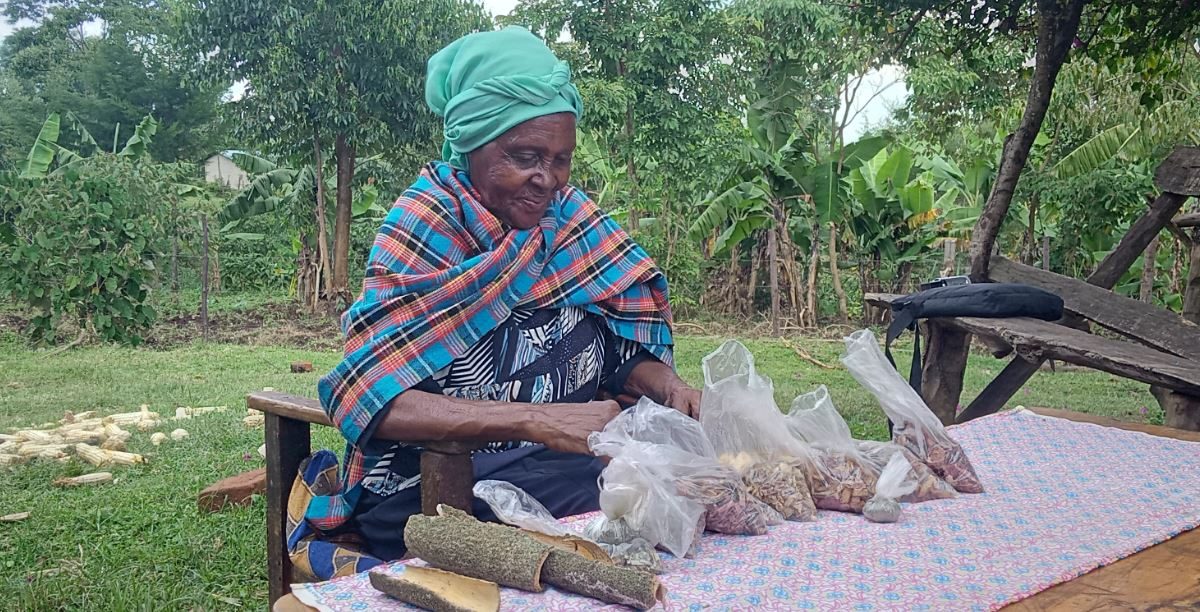For centuries, the use of herbal medicinal products and supplements has increased tremendously with most people relying on them for some part of primary healthcare.
Despite the adoption of a modern health system in Nandi County, majority of the locals still prefer seeking medical attention from the herbalist.
The herbal medicines, which were once in plenty, can hardly be found these days. The degradation of the natural resources is as a result of rising population and human activities including logging for charcoal.
Grace Kosgei, a respected herbalist with over 40 years in the trade stated that the trees majorly classified in the herbal category have been destroyed.
She said locals have been removing indigenous plants from their settlements and growing exotic trees like cypress and blue gum for commercial purposes, because they mature faster.
Like other herbalists in the region, Kosgei has been forced to crisscross other counties like Elgeiyo Marakwet, Kericho in search of herbal medicines adding that government forests were the only places where one will get the medicinal trees for extraction.
“Most of our natural forests are not fenced and this exposes them to intruders who destroy indigenous trees and encroach on forest land. In the process medicinal plants that are rare to find anywhere else are destroyed,” she said.
Nandi County has five state owned forests and water catchment areas among them Nandi Forest, Kipkurere, Serongonik, Ng’atibkong, Kipsamoite and King’wal swamp.
King’wal swamp, currently the habitat for rare semi-aquatic antelopes commonly known as Sitatunga, was covered by natural forest, before the locals’ encroached leaving it a bare land.
Kipsamoite Forest, which forms an expansive Nandi and Kakamega forests was critically affected by a lucrative charcoal business that flourished many years back before the government stepped in to protect the remaining scanty trees.
According to Kosgei, among the vital trees apparently no longer existing in the locality include ‘Murguiywet’ (Anacanthecea), whose leaves are used to make concoctions to treat skin rashes and coughing in children. Patients from as far as Nairobi, Kisii, Kisumu, Trans Nzoia and Kericho counties travel to Nandi to seek her services.
Wilson Lelei, another veteran herbalist operating in Kapsabet town stated that he is forced to travel long distances to look for various medicinal extractions from specific trees to use in his herbal clinic.
He says his clients normally seek medication for common diseases like ulcers, backache, dental ache, skin diseases, and fertility problem among others.
“Since most of our forests are depleted, I am forced to travel far and wide in search for the combination of various medicinal tree’s bucks, roots and leaves for my clients,” said Lelei.
According to Nandi Herbalist Association, over 4, 000 traditional home medicine men and women have found it impossible to access government forests to extract the medicine following the implementation of the environment policies which banned the encroachment of the forest in Nandi since 2006.
Last year, Nandi County Assembly passed a bill banning the growing of the exotic trees like blue gums in the water catchment areas and instead encouraged the locals to plant indigenous species to restore the catchment areas and protect waters sources.
County Environment Director, Dr James Meli, stated that the county, alongside the Ministry of Environment is targeting to rehabilitate a total of over 26, 000 acres of public forests negatively affected by the human activities including farming, charcoal burning and settlements.
He said there is need to protect government natural forests claiming that it would help in sustaining the rare tree species.
Leaders from the county noted that herbalist plays a major role in the community and the counties should consider them by formulating policy structures to regulate the extraction of the medicinal plants in government forests without interfering with the trees being protected.
Early last week, National Environmental Complaints Committee led by its chairman Dr Lumumba Nyaberi vowed to stop encroachment of wetlands in the county, adding that plans are underway to rehabilitate the already destroyed wetlands.
Dr Nyaberi pointed out that so far, they have facilitated the planting of over 50,000 trees around the county.
By Linet Wafula





